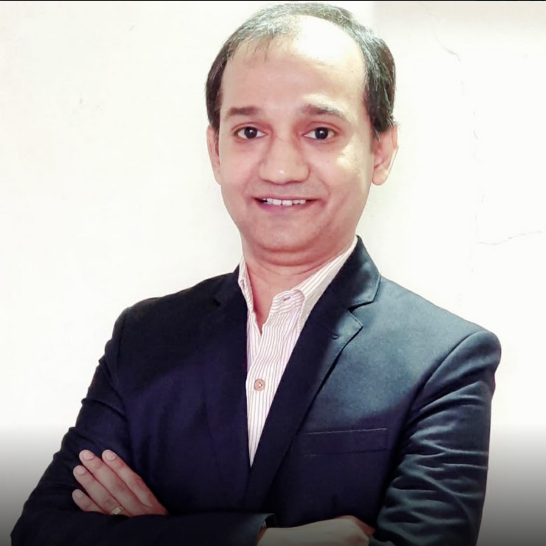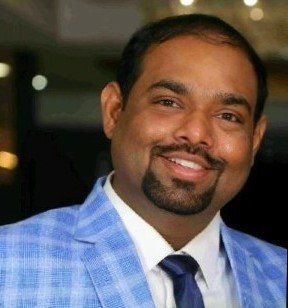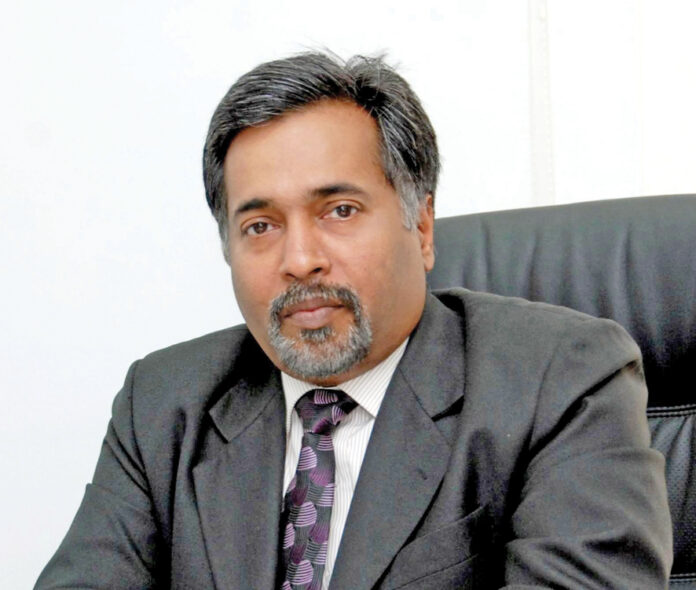Money laundering is the process of disguising the proceeds of criminal activity as legitimate funds. The goal of money laundering is to make it difficult for law enforcement agencies to trace the source of the funds and ultimately use them without attracting suspicion. There are several techniques used for money laundering.
Virtual IBAN’s
Virtual IBAN, or vIBAN, is a banking service that provides companies with a unique International Bank Account Number (IBAN) that can be used to receive and send payments. Unlike traditional IBANs, virtual IBANs are not linked to a physical bank account. Instead, they are software-generated numbers that enable companies to segregate and manage funds in a more efficient and secure manner.
The Belgian 🇧🇪 Financial Information Processing Unit (C.T.I.F.) has discovered a new technique based on virtual account numbers linked to a real bank account. The Belgian 🇧🇪 Financial Information Processing Unit (C.T.I.F.) has discovered a new technique based on virtual account numbers linked to a real bank account. The Virtual IBANs also guide the companies to comply with the different AML Regulations. As a result, virtual IBANs are becoming increasingly popular among companies of all sizes and industries.
Hawala System
The Hawala System is a traditional method of transferring money that originated in the Middle East and South Asia. It is an informal, trust-based system of money transfer that operates outside of the traditional banking system. It was created centuries ago in India and China. Before Western financial systems were established, it was used to facilitate the safe and convenient movement of money.
To address these concerns, some countries have implemented regulations to monitor Hawala transactions and ensure that they comply with anti-money laundering and counter-terrorist financing laws. In summary, the Hawala System is a traditional method of transferring money that operates on the basis of trust and personal relationships. Hawala “bankers” are usually traders, which allows them to mix the cash they receive with the legitimate proceeds of their business, making it hard to detect. While it is a useful tool for informal money transfers and remittances, it has also been associated with illegal activities.
Black Pesos Market
The Black Pesos Market is a term used to describe an underground market for currency exchange in Mexico. It refers to the illegal trade of pesos for dollars that takes place outside of the formal banking system. Colombian and Mexican drug traffickers, particularly active in the United States, quickly appropriated it.
The Mexican government has made efforts to combat the Black Pesos Market by increasing restrictions on the purchase of US dollars through formal channels and cracking down on illegal currency exchange operations.
Correspondent Banking
Correspondent banking is a relationship between two banks where one bank (the correspondent bank) provides banking services to another bank (the respondent bank). Correspondent banking enables banks to offer their customers services such as international payments, foreign currency transactions, and access to foreign markets.
Correspondent banking is an essential part of the global payment system and international trade depends mainly on it. Many banks have withdrawn from this scheme because of its high risk of money laundering. Correspondent banks are required to perform due diligence on their respondent banks and their customers, and to monitor transactions for suspicious activity.
Casinos in Macau
Macau, also known as the “Las Vegas of Asia,” is a special administrative region of China that has become a popular destination for gambling and entertainment. Macau is the only place in China where gambling is legal, and it has become one of the world’s largest gambling destinations, surpassing even Las Vegas in terms of revenue. Subsequently, casinos have made themselves an eye-catching industry for money launderers looking to turn “dirty” money into clean funds.
Round Tripping Technique
Round-tripping is a technique used in financial transactions to disguise the true origin and destination of money. It involves sending money from one entity to another through a series of transactions, often across multiple jurisdictions and financial institutions, before ultimately bringing the money back to its original source.
The CAMP certification is designed to provide individuals with the knowledge and skills needed to detect, prevent, and combat money laundering and other financial crimes. As part of the CAMP certification, round-tripping is one such technique that is covered in detail
One common example of round-tripping in India is the use of overseas investments to move money out of the country and then bring it back in a way that appears to be legitimate. For example, an Indian company might invest in a foreign company and then have that foreign company invest back in the Indian company.
Football Clubs
Money laundering is a serious issue in the world of football, with many clubs around the world being implicated in illicit financial activities. In recent years, there have been a number of high-profile cases involving football clubs and money laundering, with a range of techniques being used to hide the true source and destination of funds.
The sports industry has been fertile ground for corruption activity such as money laundering and tax evasion for a long time. One common technique used by football clubs to launder money is the use of shell companies.
Cryptocurrency Mixing Services
Cryptocurrency mixing services, also known as tumblers or mixers, are a type of service that allows users to obfuscate the origin and destination of their cryptocurrency transactions.
However, cryptocurrency mixing services are often used for illicit purposes, such as money laundering, fraud, and other illegal activities. Criminals can use these services to hide the origin and destination of funds, making it difficult for law enforcement to track and prosecute them. This cryptocurrency technique, the aspirants can gain comprehensive knowledge by opting for Certified Anti Money Laundering Professional Program by Regtechtimes Academy
Trade-Based Money Laundering
Trade-based money laundering (TBML) is a type of money laundering that involves the use of international trade transactions to disguise the source and movement of illicit funds. TBML is a complex and sophisticated form of money laundering that is difficult to detect and prevent.
The basic principle of TBML is to use trade transactions to transfer value between countries, while disguising the true nature of the transactions. This is typically done by over- or under-invoicing the value of goods, services or commodities being traded, and by using fraudulent or fake trade documents. TBML is a significant challenge for law enforcement agencies and financial institutions around the world. Regtechtimes Academy’s Certified Anti-Money Laundering Professional (CAMP) program is an excellent option for those who want to enhance their knowledge and skills in this area. The aspirants can get the understanding and knowledge of this technique by registering for this program.
The International Gold Trade
The international gold trade refers to the buying and selling of gold across borders between countries. Gold is a valuable commodity that is used for investment, jewellery, and industrial purposes, and is traded in markets around the world.
The international gold trade is a complex and important part of the global economy, but it is also susceptible to money laundering activities. That’s why the Certified Anti Money Laundering Professional (CAMP) program includes a module on the international gold trade, to help professionals identify and prevent money laundering in this sector. Specifically, the CAMP program provides training on how to identify and report suspicious activities related to the international gold trade. Overall, the international gold trade is an important sector of the global economy, but it also presents significant money laundering risks
In conclusion, the international gold trade is a valuable and important component of the global economy, but it is also subject to a range of regulations and restrictions aimed at preventing illicit activities such as money laundering and terrorist financing.
The art of the Market
Money laundering in the art market is a well-known technique that has been used by criminals to launder their illicit funds. The high value and relative anonymity of the art market make it an attractive avenue for money laundering activities.
Art laundering technique is increasing rapidly. Art auction houses and galleries can also be used as a front for money laundering activities. Criminals can use these establishments to purchase artworks at inflated prices or to sell artworks at a loss, effectively laundering their illicit funds in the process. It is indeed particularly convenient as the industry allows people to anonymously acquire expensive paintings through large cash deals.
Cuckoo Smurfing
Cuckoo smurfing is a money laundering technique that involves using a third party’s account to transfer funds without arousing suspicion. This technique is commonly used by criminals to move large amounts of money across borders without detection.
One of the key advantages of cuckoo smurfing is that it can be difficult for law enforcement agencies to trace the source of the funds. Smurfs often spread these small transactions over many different accounts, to keep them under regulatory reporting limits and avoid detection.
The term “smurf” appears to be borrowed from illegal drug manufacturers, who use multiple accomplices to evade the legal purchasing limits of drug components. The threat of Cuckoo smurfing is a serious issue that cannot be overlooked. It is essential to be aware of the red flags of cuckoo smurfing.
Therefore, this technique is covered in Regtechtimes Academy’s Certified Anti-Money Laundering Professional (CAMP) Program. It will help the aspirants to understand exactly how the cuckoo smurfing technique is used in the money laundering process. Hence, if you want to become an expert in identifying and preventing money laundering, the Regtechtimes Academy’s Certified Anti-Money Laundering Professional (CAMP) program is the way to go.
Chinese Money Brokers
Chinese money brokers are individuals or organizations that provide informal financial services, such as money lending and foreign exchange trading, to individuals and businesses in China. While many money brokers operate legitimately, some have been found to engage in money laundering activities. Criminals can use Chinese money brokers to transfer funds between accounts in different countries, disguising the source and destination of the funds as legitimate trade transactions.
B2B Credit Cards
Business-to-business (B2B) credit cards are credit cards that are specifically designed for businesses to use for their expenses. Unlike personal credit cards, which are typically used for personal expenses, B2B credit cards are used to pay for business-related expenses such as office supplies, travel expenses, and equipment purchases. To obtain a B2B credit card, businesses typically need to meet certain eligibility criteria, such as having a minimum annual revenue or a number of employees.
Online Gaming Currencies
Online gaming currencies, also known as virtual currencies or in-game currencies, are digital tokens that players use to buy and sell virtual items, services, and experiences within a game or online platform. These currencies have become an integral part of the gaming industry, enabling players to unlock new features, gain advantages over others, and even make real money. Criminals use game currencies, originally created to fuel video games virtual economies, to launder their money. Moreover, regulators are more and more interested in this sector, slowly transforming an unregulated industry into a vigilant and compliant one in the future.
Digital Advertising
In recent years, the rise of digital advertising has provided a new avenue for money laundering, as criminals can exploit weaknesses in the system to hide their illegal proceeds. One of the most common money laundering techniques in digital advertising is called ad stacking.






